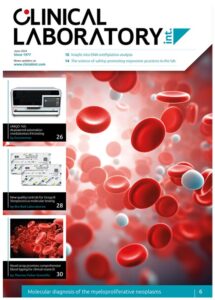Population-based screening study of asymptomatic persons to start in China using GastroPanel biomarkers to identify gastric cancer risk
A gastric cancer risk screening study will be organized in Chinese healthcare centres by the China Health Promotion Foundation. The foundation is a public organization, managed by the Chinese Ministry of Health.
The multi-centre study will be conducted by fifty to one hundred primary healthcare units. The screening of about half a million 40-80-year-old asymptomatic persons will be tested with GastroPanel biomarkers, delivered by Biohit Oyj. The parties have agreed not to disclose the value of the contract. Data collection and analysis, including evaluation, are planned to be finalized at the end of 2016. The sample collection has started in the summer of 2015.
GastroPanel is a non-invasive blood test for stomach health. The test diagnoses Helicobacter pylori infection and atrophic gastritis, caused by H. pylori infection or autoimmune disease. These results can be used to assess whether asymptomatic patients have an increased risk of gastric or esophageal cancer, peptic ulcer disease or risk of vitamin B12-, calcium-, magnesium- and iron malabsorption and if further examinations or treatments are needed.
According to CEO Liu Feng, Biohit Biotech (Hefei) Co., Ltd, ’The most important risk factors for stomach cancer are H. pylori infection and atrophic gastritis, which often are asymptomatic, and can be accurately detected by GastroPanel biomarkers used for this population-based screening. Early detection of risk groups is important for the effective prevention of gastric cancer.’
CEO Semi Korpela, Biohit Oyj said: ‘This is an outstanding opening for GastroPanel biomarkers in the screening of asymptomatic subjects to identify the risk groups for gastric cancer and vitamin B12 malabsorption among other things. Gastric cancer is the leading cause of cancer related mortality in China. The use of the very informative GastroPanel for the screening of gastric cancer risk offers the possibility of prevention and early detection of stomach cancers. Based on correct diagnosis, screening reduces sick leaves and loss of labour input, as well as self-medication with its associated risks. Early detection of risk conditions for gastric cancer and vitamin and mineral deficiencies saves healthcare costs and human suffering as well.’


